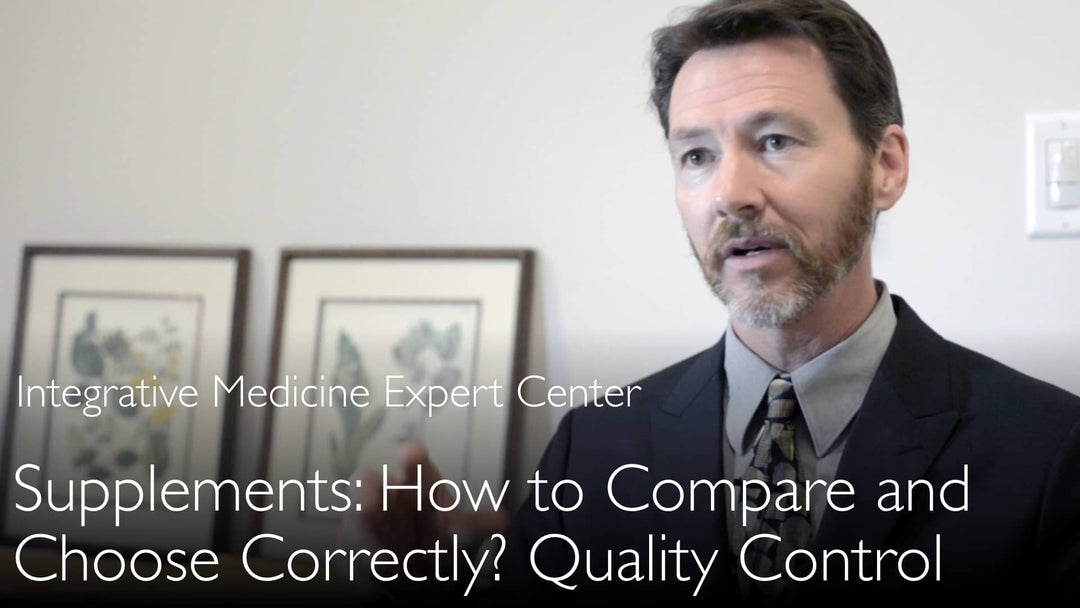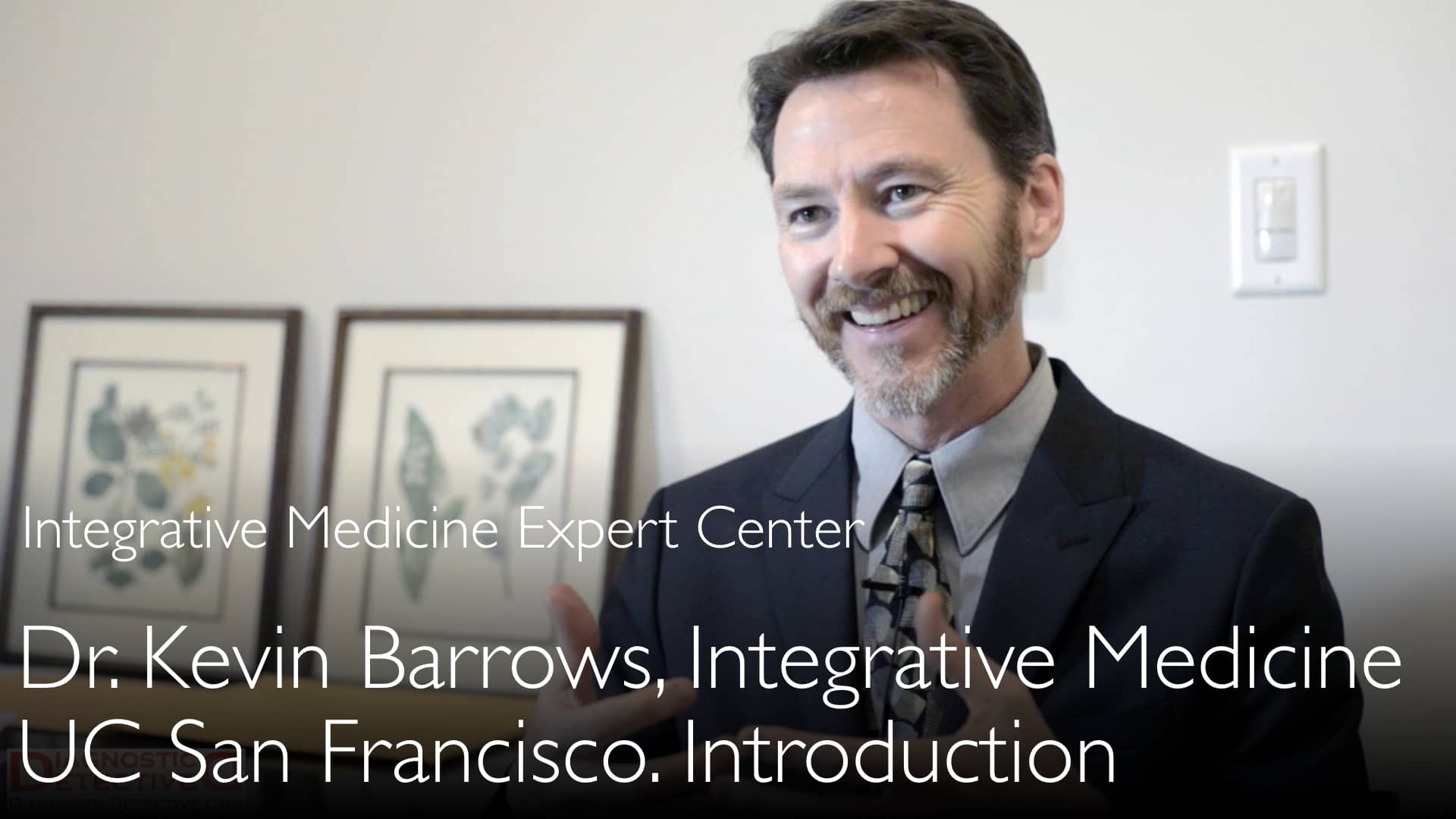מומחה מוביל ברפואה אינטגרטיבית, ד"ר קווין בארוז, MD, מסביר כיצד לבחור תוספי תזונה איכותיים על ידי הדגשת אפשרויות מבוססות ראיות כמו שמן דגים ופרע מחורר, זיהוי מותגים אמינים באמצעות בדיקות עצמאיות, בדיקת מותגים שנוסו קלינית, ואימות תווי תקן GMP (תקני ייצור טובים) כדי למנוע זיהום ולהבטיח פירוק הקפסולה.
מדריך מבוסס ראיות לבחירת תוספי תזונה בטוחים ויעילים
קפיצה לפרק
- תוספים מבוססי ראיות שהוכחו כיעילים
- אתגר איכות תוספי התזונה
- בדיקות עצמאיות לטוהר ולעוצמה
- 3 דרכים לוודא את איכות התוסף
- רעילות כבד וחששות בטיחותיים
- נוף הרגולציה של תוספי התזונה
- אסטרטגיה מעשית לבחירת תוספים
- תמליל מלא
תוספים מבוססי ראיות שהוכחו כיעילים
ד"ר קווין בארוז, MD, מדגיש שלא כל תוספי התזונה יעילים באותה מידה. כפי שהוסבר בשיחתו עם ד"ר אנטון טיטוב, MD, לתוספים ספציפיים יש תמיכה מדעית חזקה. שמן דגים מראה יתרונות מוכחים עבור טריגליצרידים גבוהים, בעוד פרע מחורר (St. John's Wort) מראה יעילות דומה לתרופות נוגדות דיכאון עבור דיכאון, עם תמיכה של עשרות ניסויים אקראיים וסקירת Cochrane.
ד"ר בארוז מדגיש את החשיבות בהעדפת תוספים עם ראיות מבוססות, ומזהיר שרבים מהם חסרים תיקוף קליני. "חלק מתוספי התזונה מומלצים, אך לאחרים פשוט אין נתונים מבוססי ראיות", אמר לד"ר אנטון טיטוב, MD.
אתגר איכות תוספי התזונה
בחירת מותג אמין מציבה מכשולים משמעותיים. "כשרוצים לקנות פרע מחורר, איך יודעים איזה מבין מאה הסוגים לבחור?" שאל ד"ר אנטון טיטוב, MD. ד"ר בארוז אישר את הבעיה הקריטית: לתוספים חסרה רגולציה ברמת תרופות, ויוצרת שונות במרכיבים פעילים, מזהמים וזמינות ביולוגית.
הוא הדגיש שאפילו תוספים עם תמיכה מדעית יכולים להיכשל אם הקפסולות לא מתמוססות כראוי או מכילות רעלים שלא הוכרזו. חוסר הוודאות הזה דורש זהירות נוספת מצרכנים ונותני שירותי בריאות.
בדיקות עצמאיות לטוהר ולעוצמה
שירותי בדיקה של צד שלישי מספקים את תקן הזהב לאימות איכות. ד"ר קווין בארוז, MD, ממליץ על מעבדות עצמאיות שקונות תוספים באופן אנונימי ובודקות:
- עוצמה: האם המוצר מכיל את הכמות המוצהרת של המרכיב הפעיל?
- טוהר: האם הוא נקי ממזהמים כמו עופרת או קדמיום?
- התמוססות: האם הקפסולה מתפרקת כראוי לספיגה?
ד"ר בארוז ייעץ לד"ר אנטון טיטוב, MD, שבדיקות אלה חושפות אילו מותגים עומדים בעקביות בתקנים, ומציעות ערבות איכות אובייקטיבית שלא זמינה מתוויות בלבד.
3 דרכים לוודא את איכות התוסף
ד"ר קווין בארוז, MD, תיאר שלוש שיטות מעשיות לזיהוי תוספים באיכות גבוהה במהלך שיחתו עם ד"ר אנטון טיטוב, MD:
1. דוחות מעבדה עצמאיים: התייעץ עם אתרים מבוססי מנויים שמפרסמים תוצאות בדיקה של צד שלישי.
2. מותגים מניסויים קליניים: זהה מותגים ששימשו במחקרים מוצלחים על התוסף.
3. אינדיקטורים בתווית: בדוק מספרי אצווה, תאריכי תפוגה ותעודת GMP (תקני ייצור טובים). "היעדר מספר אצווה או תאריך תפוגה מצביע על בקרת איכות לקויה", הזהיר ד"ר בארוז.
רעילות כבד וחששות בטיחותיים
ד"ר בארוז הכיר בסיכונים נדירים אך חמורים, כולל רעילות כבד הדורשת השתלת כבד. "קיימות דיווחי מקרה מבוססים שבהם תוספים גרמו לנזק כבד", הצהיר לד"ר אנטון טיטוב, MD, תוך התייחסות לאירועים שדווחו במקורות כמו הניו יורק טיימס.
בעוד שחלק מהאירועים עשויים להיות מקריים, מזהמים או חומרים מזויפים בתוספים מהווים סכנות ממשיות. ד"ר בארוז הדגיש כי בדיקות איכות קפדניות הן ההגנה העיקרית מפני רעילות.
נוף הרגולציה של תוספי התזונה
בניגוד לתרופות, תעשיית התוספים פועלת תחת פיקוח מינימלי. ד"ר קווין בארוז, MD, הסביר לד"ר אנטון טיטוב, MD, שה-FDA אינו מאשר מראש תוספים לבטיחות או ליעילות. התנגדות ציבורית לרגולציה הדוקה יותר שומרת על סביבת "המערב הפרוע" הזו למרות הסיכונים הידועים.
למרות שקיימת תעודת GMP, העמידה אינה נאכפת באופן אוניברסלי. ד"ר בארוז ציין רק מגמה איטית לעבר רגולציה מוגברת, עם שינויים גדולים שלא סביר שיתרחשו ללא זעקה ציבורית לאחר משברי בטיחות.
אסטרטגיה מעשית לבחירת תוספים
ד"ר קווין בארוז, MD, ממליץ על תוכנית פעולה זו לצרכנים:
- בחר רק תוספים מבוססי ראיות עבור מצבים ספציפיים.
- אמת מותגים באמצעות דוחות בדיקה של צד שלישי או מקורות מניסויים קליניים.
- דחה מוצרים ללא מספרי אצווה, תאריכי תפוגה או תעודת GMP.
- התייעץ עם נותני שירותי בריאות regarding אינטראקציות אפשריות וניטור בריאות הכבד.
"זה מכשול נוסף", אמר ד"ר בארוז לד"ר אנטון טיטוב, MD, "אבל חיוני לטיפול אינטגרטיבי בטוח ויעיל."
תמליל מלא
ד"ר קווין בארוז, MD: - כשאנחנו אומרים תוספי תזונה - זה כולל הרבה דברים שונים. חלק מתוספי התזונה אינם מבוססי ראיות, וחלקם מבוססי ראיות. כשדיברנו קודם בראיון הזה - יש אינדיקציות מסוימות - שמן דגים עובד טוב להיפרטריגליצרידמיה. פרע מחורר (St. John's Wort) הוא דוגמה מצוינת לטיפול יעיל בדיכאון. יש לנו כמה עשרות ניסויים אקראיים מבוקרים על זה. יש לנו סקירת Cochrane שמסיקה שהוא יעיל באותה מידה כמו תרופות נוגדות דיכאון, עם פחות תופעות לוואי. אז חלק מתוספי התזונה מומלצים. לאחרים פשוט אין נתונים מבוססי ראיות. אז זה הופך לשאלה - טוב, אתה יכול לנסות, אם זה בטוח לקחת, אתה יכול פשוט לנסות ולראות אבל אתה לא really יודע אם זה יעזור. Then the next question is - say, you want to buy St. John's Wort supplement. How do you know which one to buy?
ד"ר קווין בארוז, MD: There's probably a 100 varieties on the shelf. How do you know which one is the best one? There are different ways to assess that. There's a subscriber website that does independent testing of many food supplement products that are on the shelf. They will go, for example, in the case of St. John's wort, and collect 20 different brands, products of St. John's Wort, and they will test them in the laboratory. These are independent from the manufacturers, it's a third-party testing services.
Does the pill have the amount of St. John's Wort that the bottle says it does? Does it have any contaminants, like lead, cadmium? Will the capsule dissolve and allow you to absorb the medicine? Because if the capsule doesn't dissolve then you just pass it [through intestines without benefit]. Similarly with fish oil. They were evaluating [fish oil supplements]. So you can see, which brands pass these tests and which brands have not. This is a very important point, so it's not just looking at the label and saying, "St. John's Wort", or any particular food supplement that has been shown in clinical trials to work. But it is important to be certain that the actual substance is contained there, that there is no additional harmful substances contained in the vial of supplement.
Is the supplement contained in a form that would be beneficial and can be used by the body?
ד"ר אנטון טיטוב, MD: That is a very important point!
- It is! It's an extra hurdle, unfortunately, for Integrative Medicine to overcome. With pharmaceutical medicines, you can be pretty assured that if a medication finally gets to the point of being dispensed in the pharmacy, the purity, the integrity and all of the processes to make that substance are reliable. And, therefore, the products are reliable. That is 99,9% true. At least in the industrialized world...
ד"ר קווין בארוז, MD: - That's right. That's true! In integrative medicine, with dietary supplements, we can prescribe St. John's Wort. Now we have to go the extra step - "Which brands of St. John's Wort do we know are good?" There are three ways to assess that - One is this website that tests food supplements independently. Another is - if you go to the original studies, you actually go to look at the original scientific studies on St. John's Wort and see what brand did they use in the studies. That brand is likely a good bet. Although it doesn't necessarily prove that it's not contaminated. It can show that it is effective or not. A third level of evidence on quality of supplement production is not quite as good. There are certain characteristics of a product that you can see in the label. I will give you a simple example. If there's no lot number and no expiration date - that's a bad sign. That means that company might not be tracking their manufacturing process. So, if they produce a bad batch, contaminated batch - how would they trace it? That suggests this maker of dietary supplements is not fully on top of their manufacturing process. There's also in the US a certification called Good Manufacturing Practices. That's a set of characteristics that a company has to fulfill to be qualified as having basic manufacturing processes in place. And the quality producers adhere to Good Manufacturing Processstandards? - Yes! That is some kind of general rules about assessing quality, because it is the wild west. Food supplement industry is unregulated, or mostly unregulated, certainly compared to pharmaceuticals, it's less regulated. Do you envision the time when it will be more regulated and more quality-controlled? Will the requirements for food supplements be similar to traditional pharmaceuticals? I'm gonna guess
ד"ר קווין בארוז, MD: - probably not. But there has been a trend, a slow trend toward increasing regulation. You never know. If some unfortunate terrible catastrophe happened, there might be a public outcry to tighten regulation of these things. But up until now the general public opinion has been, "We don't want it so tightly regulated, we want the freedom to have access to these products". "We don't want things [to be like with traditional pharmaceuticals]." It's the criticism saying that FDA processes are too tight, it takes too long and too much money to get a product through. And so it limits how many products we can have. But at the same time, there were reports in the New York Times of people needing liver transplants because they took dietary supplements, which contained some toxic substances... Yes, so you need to look at those cases. As you know as a physician - liver toxicity is quite an entity. It happens unpredictably sometimes. And most of these are case reports. I don't doubt, there are some very solid case reports where it does look like the supplement caused the liver damage. But there's also a lot of cases where there was - yes
- the patient was taking the herbal supplement, but so many other things could be overlapping...
- So it could be a coincidence
ד"ר קווין בארוז, MD: - Yes, could be a coincidence - But there have been at least a few dozen of serious cases of hepatotoxicity, it's true.





